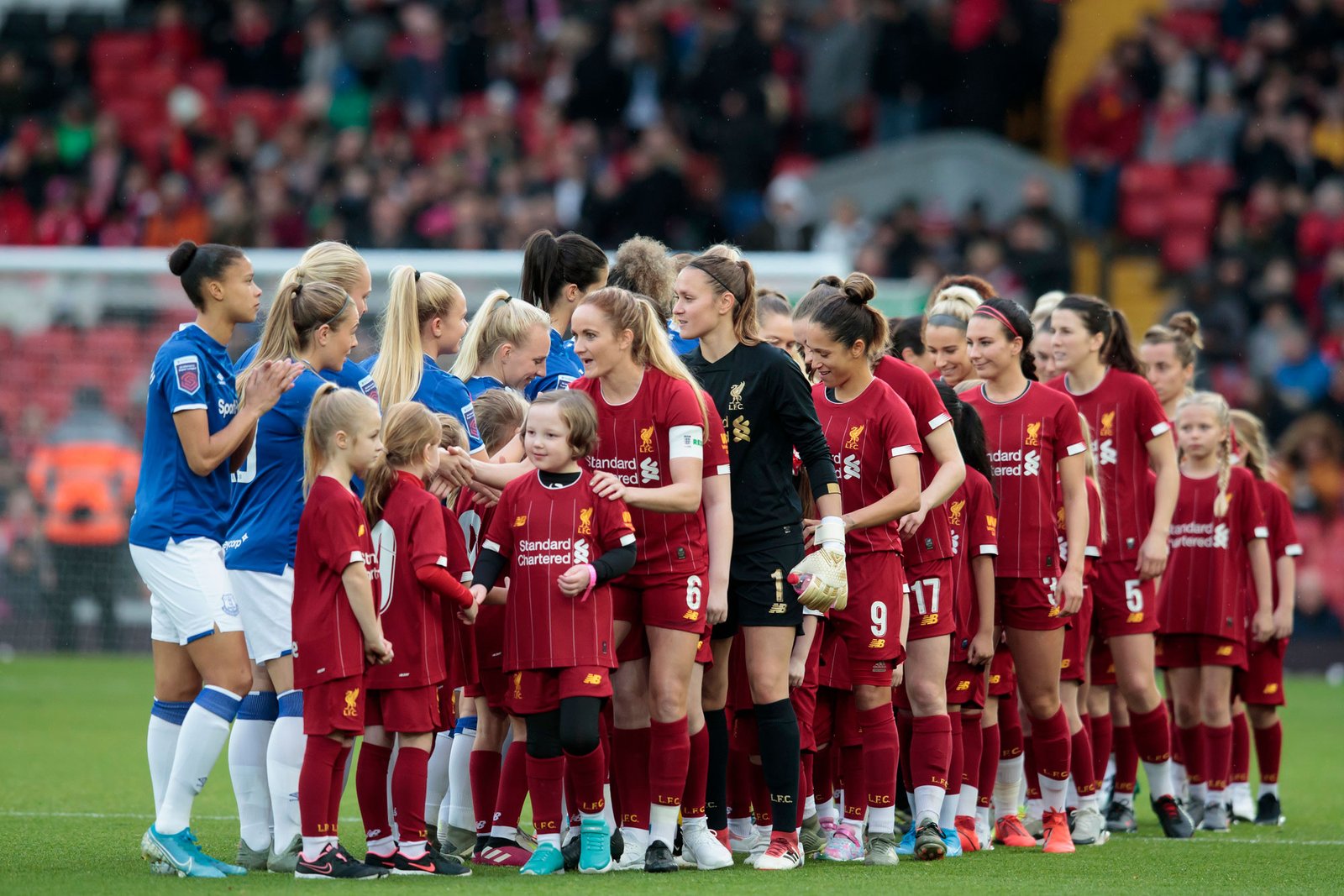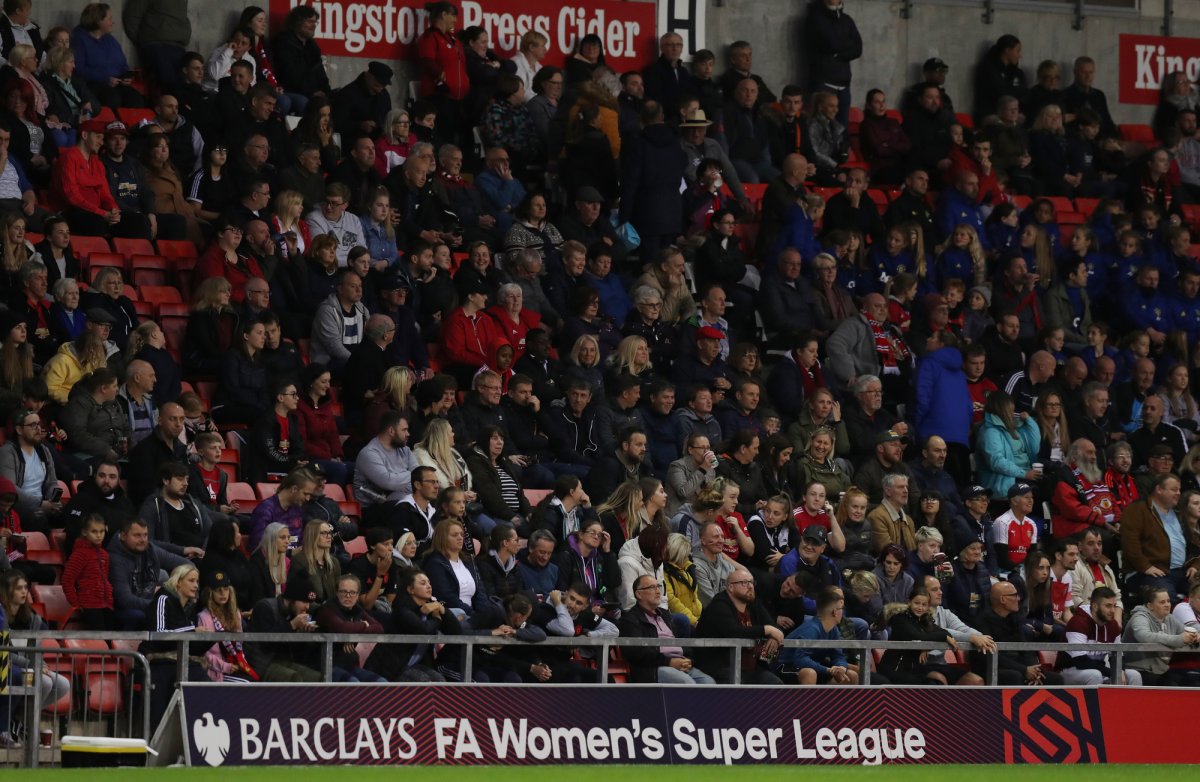
Today we have announced the final sporting outcome for the 2019/20 Barclays FA Women’s Super League and FA Women’s Championship seasons.
The FA Board was tasked with identifying the most suitable conclusion of the 2019/20 season, based on sporting merit, and they reached a majority decision on agreeing a basic points-per-game [PPG] basis, which did not take into account home and away form.
As a result, Chelsea have been crowned Barclays FA Women’s Super League champions for the third time, which also means that they will be nominated for the 2020/21 UEFA Women’s Champions League, alongside Manchester City. Congratulations to Emma Hayes and her squad on another title, and to Manchester City for a fifth straight season in Europe.
Aston Villa have also been confirmed as champions of the FA Women’s Championship and we look forward to welcoming them to the top flight of women’s English football next season.
We look forward to presenting Chelsea and Aston Villa with their trophies in the near future, so that we can appropriately acknowledge their achievements.
The decision also means that Liverpool will be relegated to the FA Women’s Championship. We entirely sympathise that this decision will cause frustration and disappointment, which is understandable in these circumstances.

The Covid-19 pandemic has presented an unprecedented challenge that has had a devastating impact on many businesses and organisations – and it also stopped football in its tracks.
Our attention immediately switched away from fixtures, results and cup competitions to focus solely on the welfare of the players and clubs. This remained our priority throughout the process and will continue to remain our priority going forward.
In March we made an announcement to suspend the 2019/20 Barclays FA Women’s Super League and FA Women’s Championship seasons. This was then followed last week with the confirmation that the 2019/20 would come to an immediate end, with a sporting outcome decision to be made to determine final league positions.
Throughout every step of the process we have followed Government guidelines and worked tirelessly with the clubs to understand the impact on them and their players. This collaborative approach would help support any decisions that were made.
We also worked closely with stakeholders across football during the ongoing and unpredictable nature of the pandemic to examine all of the options that were available to us, and that were in the best interests of the players, the clubs and the leagues.
This process did take time; however, it was important that we waited for the Government advice on returning to training and matches. We were simply not in a position to make a decision until the Government had confirmed the relevant protocols. At that point, we could then assess the protocols to see how they relate to our leagues and whether we could restart the 2019/20 season, if that was the preferred route for the clubs. Throughout this time, the understanding and cooperation of the clubs and the players was great to see and hugely appreciated.
With the Premier League and the EFL Championship due to start in a few weeks, some people may question why the women’s leagues are not doing the same. The answer is a simple one. Once the Government published the protocols to return to training, we consulted with the clubs and looked at every possible way to complete the season.
Following consultation with the clubs, and separately with all of the club captains, the clear consensus was that there were too many operational, logistical and financial obstacles in place to complete the season – and that the overwhelming view was to prepare for and concentrate on coming back even stronger for the 2020/21 season.
I’m often asked to compare the women’s game with the men’s professional game. The truth is that you can’t. It would not be a fair comparison at this stage of the development of the women’s game. The Barclays FA Women’s Super League is the only fully professional women’s league in Europe, and we are incredibly proud of how far it has come on, but we have to remember that it has only been professional for two seasons.

Women’s football is going from strength to strength in England, both on and off the pitch, and The FA’s commitment to growing women’s football at every level of the game has never been greater. Before the Covid-19 pandemic, we saw unprecedented growth in the women’s game. In the Barclays FA Women’s Super League alone, attendances grew by 174% from 2016, TV audience up by 231%, we signed a record partnership deal with Barclays, we agreed new international broadcast deals to take the league to new audiences, and participation numbers in women’s and girls’ football continues to grow. We will do everything we can to ensure this momentum continues into next season.
However, this is a challenging time for football and The FA has taken a significant financial impact as a result of the Covid-19 pandemic, which has been outlined by our Chairman, Greg Clarke and our Chief Executive, Mark Bullingham.
Some people have questioned how this will affect the future of the women’s game, but I want to give the reassurance that despite the financial impact on The FA, our commitment to the women’s game is as strong as ever. Despite the organisation having to make significant financial cuts over the coming years, we are protecting our investment into the Barclays FA Women’s Super League and the FA Women’s Championship – and they remain a major strategic priority for The FA.
The season ending early gives us the time to plan to come back bigger and better for the 2020/21 season, and we are determined to ensure we don’t lose the momentum generated before the country went into lockdown. We are in the final stages of agreeing the start dates for the 2020/21 season and we will announce them as soon as they have been agreed.
I know that the Women’s FA Cup is something that fans are also keen to know whether it will conclude or not. Conversations are still ongoing, and we want to ensure that if there is a way to complete the world’s best domestic cup competition, then we want to give it every chance – and we will have more news on this soon.
There is so much to be positive about. We have some of the best players in the world gracing our league and they are now exposed to a worldwide audience through The FA Player. We are soon to open bidding for domestic broadcast rights – and we expect this to be a highly competitive process, which will help the league grow both audience and revenue in the future.
We are working hard to bring you a competition you can continue to be proud of. We have been unified while being apart, but we will be even stronger when we are back together.




